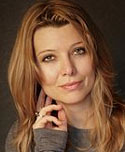
By Elif Shafak
3 January 2017
Last year was one of incessant tension and sorrow for Turkey. A series of deadly terror attacks left the entire country fearful, traumatised. There were public funerals in almost every town, but even grief can’t unite a society as polarised as ours.
As a nation we now spend more time talking about death than about the joys of life. “Will it be after a football match? Or maybe when I am returning home from work? When will I become a number?” wrote one person on Twitter, reflecting the sentiments of millions of citizens. “Don’t be sad that you couldn’t win the lottery,” said another on social media. “If you are alive, it means you’ve won the biggest lottery in Turkey.”
The victims of terrorism are called “martyrs” while the names of urban landmarks are changing, slowly, into Martyrdom Hill or Martyrdom Street. Ministers greet police officers, wishing them to sacrifice themselves for the nation. “God willing, you shall be martyrs too,” says the minister of urbanisation, Mehmet Özhaseki.
The government is trying to cover its incompetence in both foreign and domestic policy with the language of jingoism and patriotism. Those who question the official line are labelled “betrayers” and “pawns of western powers”. Young people are told that we are a country surrounded by water on three sides and enemies on all four. As paranoia, distrust and fear intensify, the culture of coexistence dissolves.
With such a gloomy year behind us, no wonder many Turks were looking forward to celebrating the arrival of 2017 as a sign of hope and renewal. It was this sliver of optimism that had brought together hundreds in Istanbul’s famous nightclub Reina on New Year’s Eve. It was a mixed group of Turks and foreigners, the kind of diversity that Islamic fanatics hate. The Isis attack, in which 39 people were massacred, took place in a country where the seeds are sown for fanaticism, bigotry and authoritarianism. The rift between the secularists and the religious has grown. In a Friday sermon broadcast to more than 80,000 mosques across the country, Diyanet, the religious affairs directorate, called New Year celebrations “illegitimate”.
For weeks prior to New Year’s Eve, ultra-nationalist and Islamist groups had been distributing flyers on the streets saying “Muslims do not celebrate Christian festivals”. An extremist group in the city of Aydin staged a protest play full of hate speech against Christians, in which one of their own who was dressed as Santa Claus was chased and had a gun held to his head.
There were billboards in big cities this year with a scary-looking Santa smoking cannabis. “Christmas is a blow to our Muslimhood,” read the slogan. In the city of Van another billboard read: “Did you ever see a Christian celebrating Eid al-Adha? Why are we celebrating their festivals?” Meanwhile, a group of students at Istanbul Technical University gathered to hold up signs that said: “Do not be tempted by Satan. Do not celebrate New Year”; “There is no Christmas in Islam”; “In Muslim lands people are trying to keep alive, in their lands it is all about festivities”. The same group then produced an inflatable Santa Claus, which they first circumcised and then stabbed multiple times.
It is of course ironic that St Nicholas, who is vilified by Turkish extremists today as the basis of the Santa Claus legend, was originally from Patara, on Turkey’s Mediterranean coast, and was until recently a source of national pride. Last year poor Santa was politicised and demonised like never before. The Islamist newspaper Milat published a column mocking Santa, claiming the red of his robe was dyed in the blood of the people of Aleppo, and that Santa brought gifts to children in the west while bringing bombs and death to children in Aleppo.
And the hate speech did not wither even after the horrific act of cruelty in Reina. Islamist commentators appeared on TV to say: “We are against New Year. We are against drinking alcohol and celebrations. Whoever wants to blow up whatever place may do so.”
What is puzzling is how, in a country where anyone who writes anything critical about the government can be instantly sued, and possibly even arrested and put on trial, such religious or nationalist hatemongers rarely have action taken against them – although the government has just announced that 347 social media users who posted comments in support of terror attacks are to be investigated.
Such is the atmosphere of intimidation that a prominent journalist, Ahmet Sik, predicted weeks ago that Islamists might target New Year celebrations. Today Sik is in prison, punished for his outspokenness, alongside more than 140 Turkish journalists and intellectuals.
The country is at a critical juncture – or perhaps beyond it. Because of the sad loss of democracy within its borders and the repeated mistakes of its AKP government in Syria, because of the turbulence of the Middle East and the changing world scene, our big cities have become a new front for terrorists.
Once we thought Turkey would be a shining role model for the Muslim world; now we are worried that our country may in fact be following some of its worst examples.
Source: theguardian.com/commentisfree/2017/jan/03/reina-islamic-fanaticism-turkey-new-years-eve-massacre




 Moderate Islamist here
Moderate Islamist here


0 comments:
Post a Comment